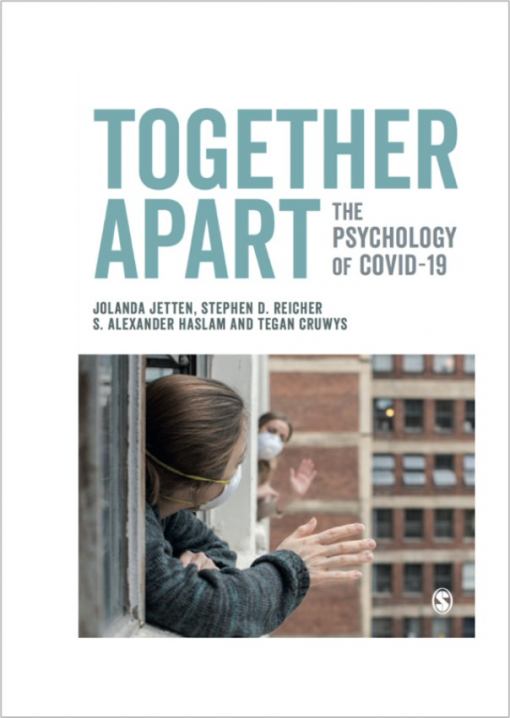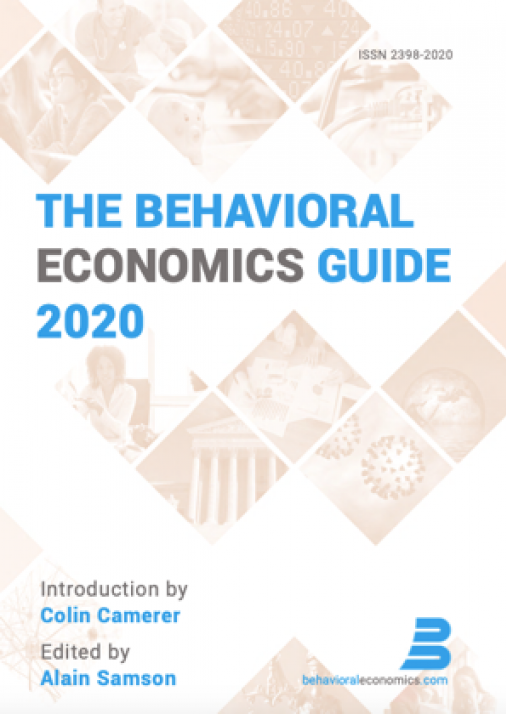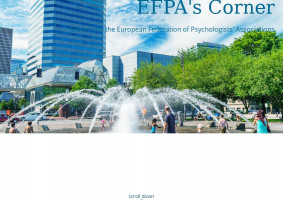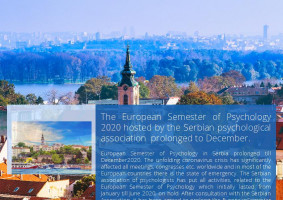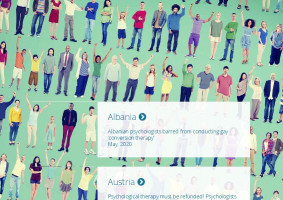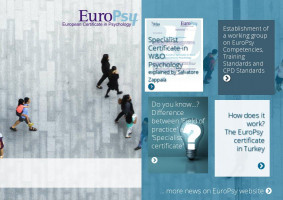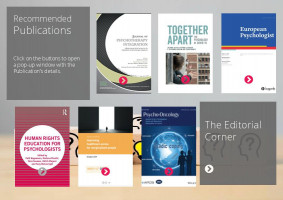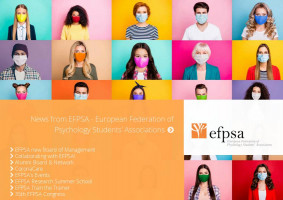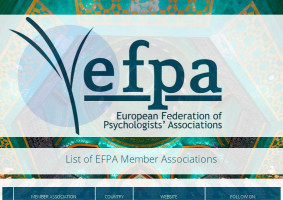Recommendations for Policy and Practice of Telepsychotherapy and E-Mental Health in Europe and Beyond
Delivery of psychotherapy has rapidly changed as a function of physical distancing recommendations by the World Health Organization that aim to slow transmission of COVID-19 during a global pandemic. A consequent need for rapid infusion of psychological science into care delivered via telepsychotherapy has emerged. As an international journal with global reach, the Journal of Psychotherapy Integration (JPI) has responded to this need with an expanded special issue devoted entirely to the topic of telepsychotherapy in the age of COVID-19.
Starting from the premise that an effective response to the pandemic depends upon people coming together and supporting each other as members of a common community, the aim of this book is to use social identity theorising to provide a comprehensive and integrated analysis of the psychology of COVID-19.
Read more bout this book on the nearby "Editorial Corner" bloc.

Volume 25, no. 3 is now available online
Special Issue: Psychology and Aging: European Perspectives
Highlights:
Psychology and Aging: European Perspectives
Prospective Memory Development Across the Lifespan - An Integrative Framework
Sleep Quality and Daytime Functioning in Older European Adults
This ground-breaking book is designed to raise awareness of human rights implications in psychology, and provide knowledge and tools enabling psychologists to put a human rights perspective into practice.
Psychologists have always been deeply engaged in alleviating the harmful consequences human rights violations have on individuals. However, despite the fundamental role that human rights play for professional psychology and psychologists, human rights education is underdeveloped in psychologists’ academic and vocational training.
This book, the first of its kind, looks to change this, by:
raising awareness among professional psychologists, university teachers and psychology students about their role as human rights promoters and protectors
providing knowledge and tools enabling them to put a human rights perspective into practice
providing texts and methods for teaching human rights.
Featuring chapters from leading scholars in the field, spanning 18 countries and six continents, the book identifies how psychologists can ensure they are practising in a responsible way, as well as contributing to wider society with a clear knowledge of human rights issues in relation to culture, gender, organisations and more.
Joint Statement: Improving the healthcare access for marginalised people
The Nobody Left Outside (NLO) initiative is a collective of organisations representing people in some of the most marginalised communities in Europe, who are underserved with respect to healthcare. These communities include homeless people, LGTBI people, people who use drugs, prisoners, sex workers and undocumented migrants.
People in these communities are at a significantly higher risk of poor health than the general population and are often in highly vulnerable situations. At the same time, they face significant challenges in accessing healthcare owing to a complex range of barriers, coupled with discrimination and stigma. As a result, many people most at need of healthcare are among the least likely to receive it. In effect, they are left outside healthcare systems.
The NLO initiative provides a European-level platform for organisations to collaborate to identify shared challenges, exchange lessons and good practice, seek innovative solutions, and speak with a unified voice to offer guidance to improve healthcare access for the communities of people they represent – on the basis that nobody should be left outside.
Psycho-Oncology
The Editorial Corner
This book, that is free to download is the product of the work of a group of social psychologists who have been developing the evidence base for the application of social identity theory to many different areas, and they have come together to help us understand the key psychological challenges of the Pandemic. It has become clear that the way we respond to this crisis depends crucially on the relationship between the individual and the collective, and the relationship between the individual and the state – and much of that relationship depends on trust.
One of the editors and contributors, Stephen Reicher gave a fascinating talk at the British Psychological Society (virtual) conference this month and you will be able to see it on the BPS YouTube channel where he outlines these issues. But read the book. It is a wealth of fascinating insights about how we can understand better what we need to do to improve our responses to the public health challenges that lie ahead for us all.
Behavioural Economics may not be everyone’s cup of tea and indeed there has been some debate about its merits when applied to tackling the Pandemic. However, there is much that is valuable in bringing together ideas in psychology with those of economics and this free annual update is a valuable resource.
The chapter by Elke Weber, psychologist from Princeton, entitled Giving the Future a Chance : Behavioral Economic Responses to the Dual Challenges of COVID-19 and the Climate Crisis is highly recommended, and usefully brings together many important themes and complements the social identity work described earlier. Here is a brief extract that gives you a flavour..
The COVID-19 pandemic may be the most important public health challenge of recent decades, with severe implications for human life, wellbeing, economic prosperity, and security. Yet, over the long term, its impacts will most likely be dwarfed by the consequences of global climate change. There is a growing threat of exceeding critical thresholds of greenhouse gas concentrations in the Earth’s atmosphere that keep our planet’s climate within a livable range and also of exceeding other planetary boundaries, all of which are driven by a growing global population with increasing expectations for improved standards of living and by a global market economy that depends on continuous growth.
_w544_h554_1.png)
